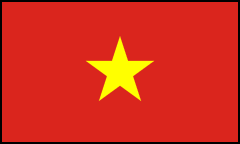In this article, you will be given information about copyright law in Singapore. It starts from the definition itself, copyright protection in Singapore, and lastly, the requirements to get one. You might ask yourself why we need to know about copyright because it is something that we encounter every day in our daily lives. For instance, the songs we listen to, the movies we watch, even this article that we are reading right now are protected by copyright. Let’s have a read until it ends!
What is Copyright?
You may be often hearing about something that has a copyright, but may not know what exactly it is. Well, copyright is an Intellectual Property (IP) right that will protect the expression of ideas, but not the idea itself. It protects original literary, musical, dramatic and artistic works that have been expressed and recorded in a tangible form.
Generally, the author of a copyrighted work has the right to reproduce, publish, perform, communicate and adapt his/her work. These rights enable a copyright owner to control the commercial exploitation of his/her work. However, copyright does not protect inventions or a company’s brand. Those are protected by patents and trademarks respectively. In this country, copyright is governed by the Copyright Act (CA).
Copyright Protection Law in Singapore
The author usually enjoys copyright protection as soon as he/she creates his/her work in an actual form. Moreover, a work that is to be protected by copyright in Singapore needs to be original and expressed in a tangible form, such as in a recording or in writing.
It simply means that there is a degree of independent effort in the creation of work and not a question of whether work has creative merit or not.
Hence, it protects expressions of ideas by granting the copyright owner of the work a bundle of rights. This bundle of rights also grants the copyright owner to exclusively reproduce, publish, perform, communicate, and adapt his/her work.
The copyright owner normally is the author of the work, but this is not always the case. For example, the author may have sold his/her copyright to another party and more situations where the author does not hold the copyright to the work.
However, copyright is territorial, and that means copyright which arises in Singapore is valid only within the borders. In addition, Singapore is a signatory to the Agreement on Trade-Related Aspects of Intellectual Property Rights (TRIPS), an international treaty that controls intellectual property rights globally. As a result, any copyright that is created in Singapore is also protected in countries that are signatories to TRIPS.
Copyright in Singapore automatically comes into existence for work that qualifies for protection. In other words, there is no need to worry about registration or the paperwork associated with it. It somehow will save authors time, effort, and registration fees.
How To Get Copyright Protection in Singapore?
The authors who intend to commercialize their work do not need to acquire a copyright license or register it as there is no copyright registry in Singapore. Copyright is automatically granted as soon as you create and express your original work in a tangible form, such as in a recording or writing.
READ MORE: Viettonkin Legal Service
There is a qualification for copyright protection in Singapore for your works, and keep it in mind that your works must be followed the requirements below!
1. It must be a literary, dramatic, musical or artistic work.
- A literary work is one that is written and contains information that can be read.
- A dramatic work is a work capable of being performed and conveys a plot.
- A musical work is an arrangement of musical notes.
- Artistic works refer to a painting, sculpture, drawing, photograph, a building, or any work of artistic craftsmanship.
2. Connected to Singapore.
The CA requires the author to be a Singapore citizen or residing in Singapore, or the work is first published in Singapore.
3. Expressed in a tangible form.
The CA requires that the work be reduced to writing or some other material form.
4. Be original and maintain your proof of originality.
A work is considered original if it originated from the author. It even happens if someone else produces a similar work independently. For instance, two photographers can have a similar photograph of the Singapore skyline on their own, but they have knowledge of one another’s photograph. However, both works can be granted copyright protection and neither would be infringing upon the other’s copyright.
Also, there are a number of ways you can maintain proof that you are the author:
- Deposit a copy of your work with your lawyers or in a depositor
- Send a copy of your work to yourself by post, leaving the envelope unopened, so that the date stamp and the unopened work could establish the date of the work’s existence.
- Make a declaration before a Commissioner of Oath stating the fact of ownership and the date of creation.
You may be wondering if the copyright symbol is necessary or not, anyhow the use of its symbol is not required. It would automatically exist for your original work with or without the symbol.
Other than that, the copyright symbol may be useful in a court proceeding, and its use may prevent an alleged copyright infringer from claiming someone’s work because the copyright symbol would have notified them that the work is under the protection.
After following the requirements above, the next thing you need to know is the duration of copyright protection. If you have published literary, dramatic, musical or artistic works, copyright in the country will last for 70 years after the author’s death.
If the works have been published only after the author’s death, copyright will last for 70 years after the work was first published. This allows for copyright protection to last indefinitely if the work remains unpublished.
Nevertheless, the CA will be amended so that protection lasts no longer than 70 years after the author’s death, even if the work was published or unpublished.
After the copyright expires, the work goes into public domain. It means that everyone would be free to use, adapt, or build on the work. The CA does not allow for copyright protection to be revived once it has expired.
Getting to know about copyright protection law in Singapore is important, it’s especially when you are gonna have your work published in the future. Thus, you must follow the requirements mentioned above to have the protection soon after your work is published!







